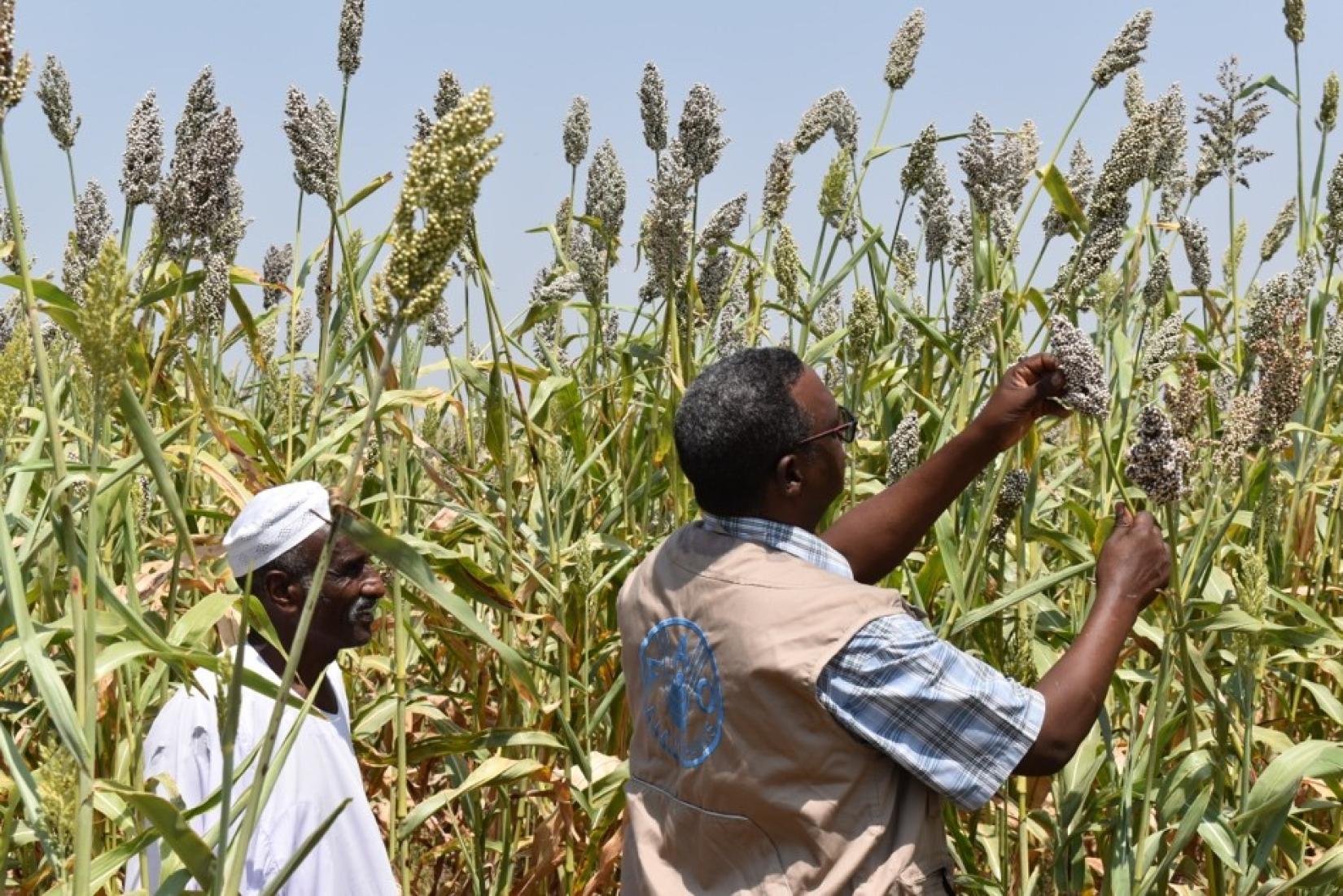Cereal production improves while food insecurity persists in the Sudan – new report finds
27 March 2023
Although overall cereal production at national level is impressively better than the previous season, food insecurity at the household level remains a serious challenge

A recently released special report by the Food and Agriculture Organization of the United Nations (FAO) 2022/23 Crops and Food Supply Assessment Mission (CFSAM) has revealed significant improvements in cereal production in the Sudan. The mission was conducted at the request of the Ministry of Agriculture and Forests and in close collaboration with key partners, including the World Food Programme, the Famine Early Warning Systems Network, and the United States Agency for International Development.
As the report indicates, most agricultural inputs, including seed, fertilizer, herbicides, fuel, and labour, were available in 2022 – but at a very high cost compared to the previous season. As a result, most farmers had to utilize the seeds they had saved from the previous year’s harvest due to high market prices.
“Although overall cereal production at national level is impressively better than the previous season, food insecurity at the household level remains a serious challenge,” said Adam Yao, FAO Representative a.i. in the Sudan. “Communities are facing differing scales of vulnerabilities driven by soaring prices of staple crops, and the combined effects of economic downturn, high inflation, climate-induced hazards and conflict.”
According to the report, the 2022 national cereal production, which includes sorghum, millet, and wheat crops (harvested in March 2023), is estimated at about 7.4 million tonnes – 45 percent above that obtained in 2021. Sorghum production alone is approximately 5.2 million tonnes, a 50 percent increase compared to the previous year. Millet output is estimated at 1.7 million tonnes, an 86 percent increase compared to 2021. However, the production of wheat to be harvested in March 2023 is forecasted at about 476 000 tonnes – a 30 percent decrease compared to 2021 due to a reduction in planted area in favor of legumes and spices.
This significant increase in total cereal production can be attributed to favorable weather conditions, in particular a good performance of the rainy season, supported by over 5 000 tonnes of quality seeds of improved varieties supplied by FAO to strengthen vulnerable households ‘own food production. With 95 percent of cultivated land under rain-fed agriculture, rainfall is an important driver of crop production.
Using the population projection of 47.6 million people for mid-2023[1], the cereal import requirements for the 2023 marketing year (January/December) are forecasted at 3.6 million tonnes, almost entirely of wheat, which will require an importation of 3.5 million tonnes to cover domestic consumption. This will have a major impact on the food security of millions of Sudanese people, as international prices of wheat continue to increase and the country’s national currency weakens.
By contrast, for sorghum and millet, surpluses of 484 000 tonnes and 679 000 tonnes are forecasted respectively.
“It is essential to continue enhancing domestic cereal production to strengthen the food security and resilience of the most vulnerable people in the Sudan”, emphasised Mr Yao.
# # #
The Food and Agriculture Organization (FAO) is a specialized agency of the United Nations that leads international efforts to defeat hunger. Our goal is to achieve food security for all and make sure that people have regular access to enough high-quality food to lead active, healthy lives. With over 194 member states, FAO works in over 130 countries worldwide. We believe that everyone can play a part in ending hunger.
[1] Data from Central Bureau of Statistics, 2023

